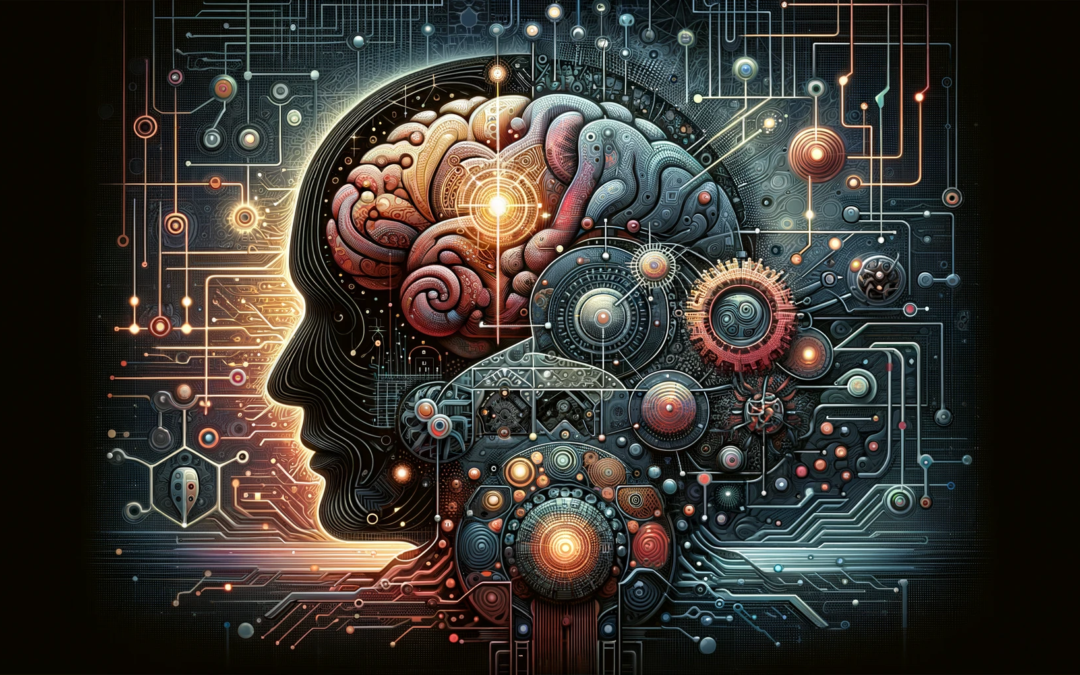Understanding the complexities of the human mind has been a subject of fascination for centuries. As we delve deeper into the realm of artificial intelligence (AI), we are beginning to witness its significant role in unraveling the mysteries of human psychology. This blog post will explore how AI is not only helping us understand psychology better but also raising profound questions about the nature of consciousness and cognition.
AI in Understanding Human Cognition
AI models have emerged as powerful tools in simulating and studying various aspects of human cognition and behavior. By analyzing vast amounts of data and employing sophisticated algorithms, AI is providing valuable insights into psychological processes. For instance, researchers have used AI to simulate decision-making processes, memory formation, and even social interactions, shedding light on the underlying mechanisms of human cognition.
AI and Mental Health
The integration of AI in diagnosing and treating mental health issues is revolutionizing the field. AI-powered platforms are enabling personalized and precise interventions, improving the accuracy of diagnoses, and enhancing treatment outcomes. These platforms can analyze an individual’s speech patterns, facial expressions, and even social media activity to detect signs of mental health disorders. By leveraging AI, mental health professionals can provide more targeted and effective interventions, ultimately improving the lives of those struggling with mental health challenges.
Ethical and Philosophical Implications
As AI intersects with psychology, it raises profound ethical and philosophical questions. One such question revolves around the nature of consciousness. Can machines truly possess consciousness, or is it merely an illusion created by their programming? Additionally, the understanding of free will is challenged when AI algorithms can predict human behavior with remarkable accuracy. These ethical and philosophical dilemmas require careful consideration and discussion among AI researchers, psychologists, and philosophers.
AI’s Role in Behavioral Prediction and Analysis
AI tools are increasingly adept at predicting human behavior, ranging from consumer choices to potential security risks. By analyzing patterns in data, AI algorithms can make accurate predictions about an individual’s preferences, habits, and even potential future actions. While this ability has positive implications for personalized user experiences and targeted interventions, it also raises concerns about privacy and the potential for manipulation.
The Future of AI in Psychology
Looking ahead, AI is poised to continue advancing our understanding of the human mind. The integration of AI in psychology holds the potential to unlock new insights into the complexities of human cognition and behavior. However, it is essential to consider the long-term impact of AI on the field of psychology. How will AI shape the future of psychological research and practice? What are the potential risks and benefits? These questions warrant ongoing exploration and debate.
Engaging with the Audience
We invite you, our readers, to share your thoughts and opinions on the emerging role of AI in psychology and mental health. Have you had any experiences with AI in understanding or improving mental processes? What are your hopes and concerns regarding the future of AI in psychology? Let’s engage in meaningful discussions about the intersection of mind and machine.
Conclusion
The integration of AI into the study and application of psychology offers immense potential but also poses significant challenges. As we embrace technological innovation, we must also respect the uniqueness of the human mind. Striking a balance between AI advancements and human understanding is crucial. By harnessing the power of AI while preserving the essence of our humanity, we can unlock new frontiers in our quest to understand the intricacies of the human mind.
Visual Elements
Throughout this blog post, we will include images and graphics that showcase the intersection of AI and psychology. These visuals may depict brain-inspired AI models or provide visual representations of AI applications in mental health. Additionally, we will use infographics to illustrate key concepts where AI is contributing to psychological research, making complex ideas more accessible and engaging.
SEO Elements
Keywords: AI in psychology, AI and cognition, AI mental health applications
Meta Description: Explore the fascinating intersection of AI and psychology. Discover how AI is transforming our understanding of the human mind and raising profound questions about consciousness and cognition.
This blog post aims to provide insights into how AI is intersecting with psychology, sparking interest and discussions about the future of understanding the human mind in the era of advanced AI. Join us on this thought-provoking journey at the intersection of mind and machine.










